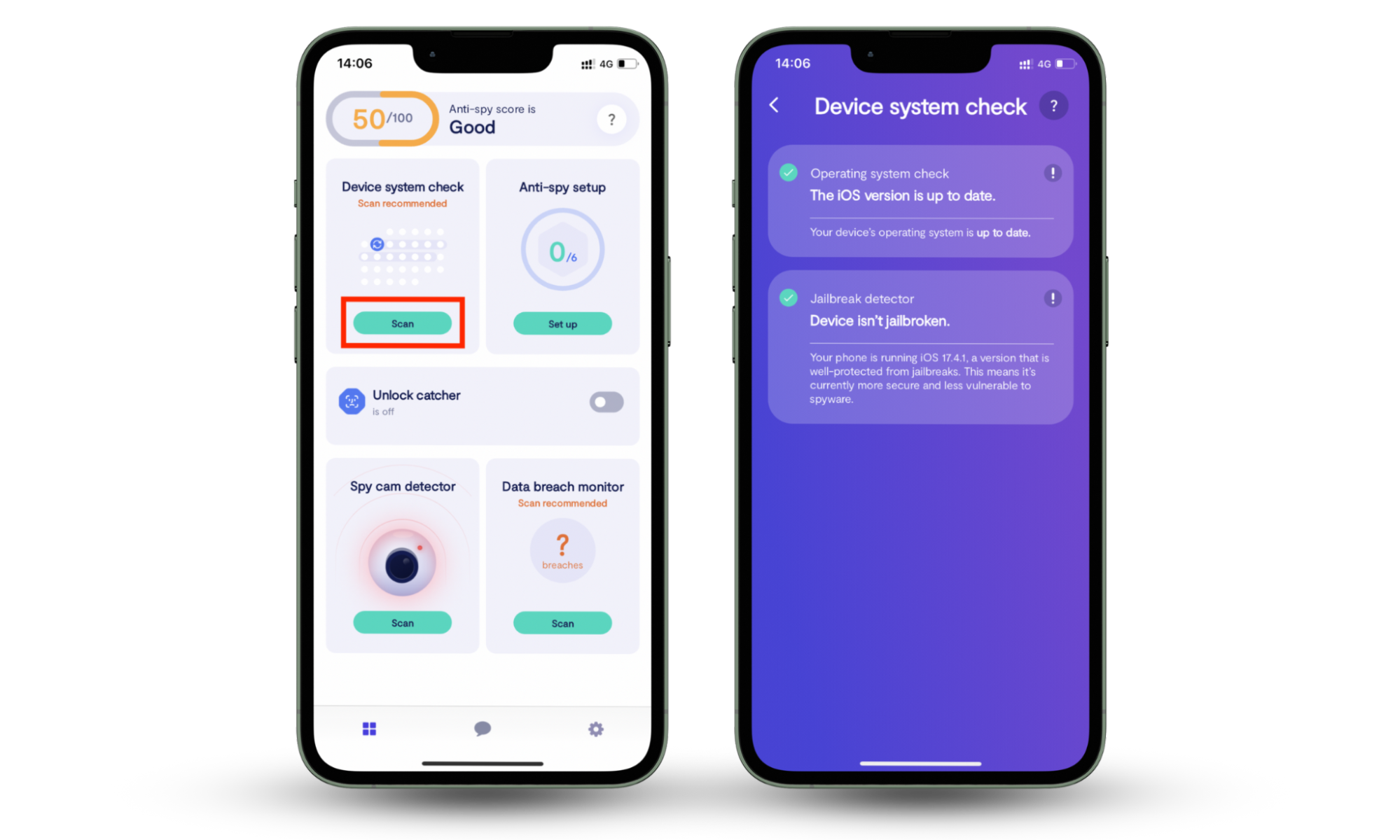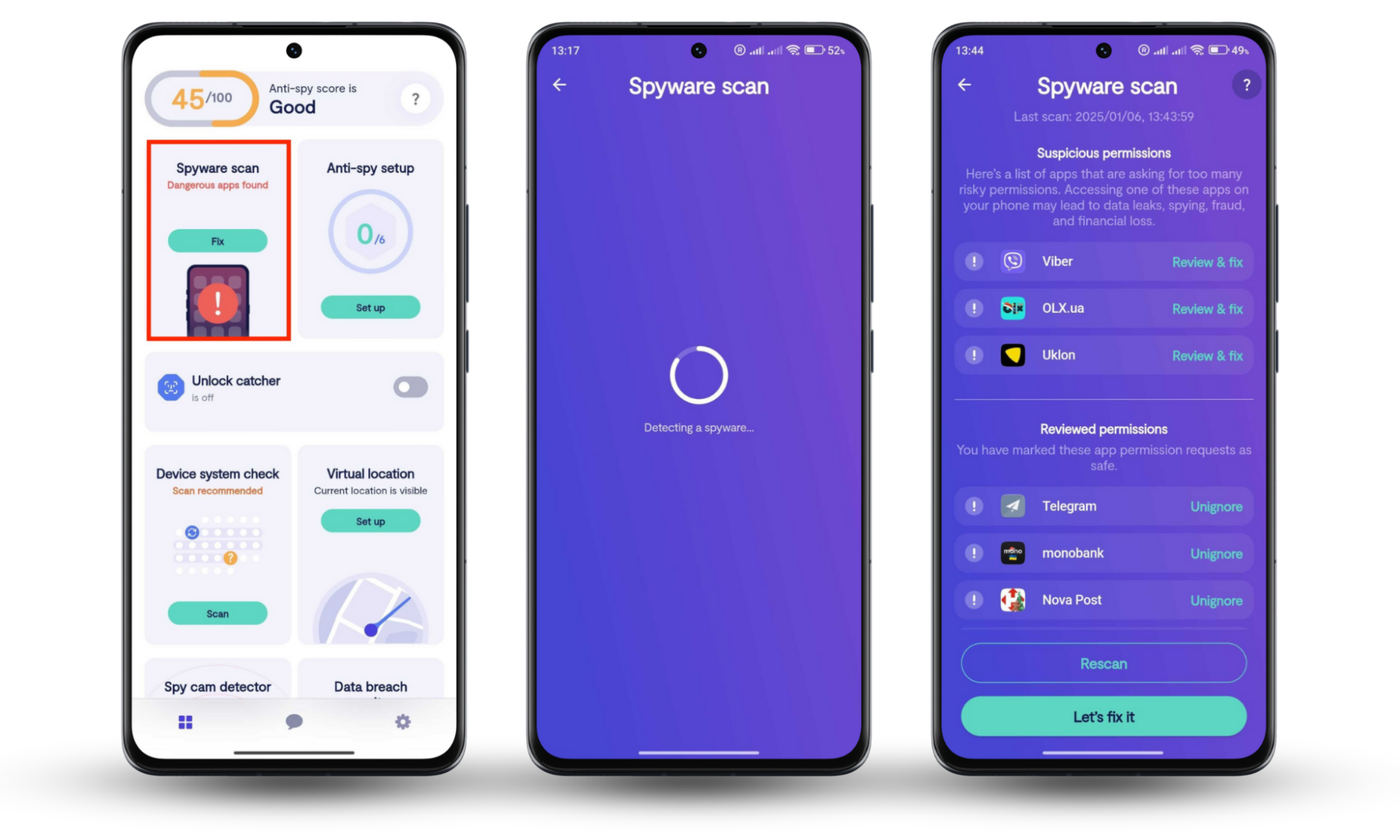Table of contents
- How NSA conducts surveillance
- Mass surveillance programs
- Signals Intelligence
- Cooperation with foreign intelligence
- Legal framework
- Data analysis and processing
- How to tell if the NSA is spying on you
- Ways to stop NSA from spying on you
- 1. Remove browser extensions
- 2. Keep devices and operating systems up to date
- 3. Avoid online shopping and social media apps
- 4. Search using a private browser
- 5. Browse with the help of a VPN
- 6. Use encrypted chats
- 7. Pay with cash or bitcoins
- Conclusion
How NSA conducts surveillance
The NSA’s primary mission is to collect and analyze foreign communications and data in the interest of national security. Though the government agency has played an integral part in the security of the United States and other parts of the world, some of its surveillance programs have raised privacy and civil liberties issues.
Does the government spy on us? Let’s see. In 2013, former NSA contractor-turned-whistleblower, Edward Snowden, leaked classified documents that exposed a mass data collection program that monitors private citizens. But that’s just one of the many spy methods the NSA employs.
Here are the general ways the NSA conducts spying:
- Mass surveillance programs
- Signals intelligence
- Cooperation with foreign intelligence
- Legal framework
- Data analysis and processing
Let's get into the specifics of these NSA spying methods:
Mass surveillance programs
A majority of NSA surveillance is conducted through records from private companies. Through the PRISM program, the NSA collects digital communication from at least nine major companies, like Microsoft, Facebook, Google, Apple, Yahoo!, AOL, and YouTube. Though this data is collected for commercial purposes, if the NSA asks for it, these companies are obligated to share it.
Data collected by companies may include:
- Emails
- Text documents
- Photos
- Location information
- IP addresses
- Browsing history
- Video call content.
The PRISM program is the primary source of information for the NSA’s reports. The revelations from Snowden’s leaks exposed the unsettling extent of digital surveillance. Considering the popularity of the websites involved, it indicates that the government agency has personal data on a large volume of individuals.
Signals Intelligence
Signals intelligence (SIGINT) involves the interception, collection, and analysis of electronic signals and communications. With the help of telecom providers, the NSA can intercept phone calls, text messages, and internet traffic. The agency also collects and stores a vast amount of bulk metadata, including phone records and internet traffic information.
Cooperation with foreign intelligence
The NSA collaborates and shares information with foreign intelligence agencies and exchanges information via alliances like Five Eyes (U.S., UK, Canada, Australia, and New Zealand). These co-operations help the NSA surveillance programs have a “longer reach” in the world.
Legal framework
Though the NSA’s activity may seem questionable, they (mostly) operate under the law. Through the Foreign Intelligence Surveillance Act (FISA), the NSA is allowed to collect intelligence on foreign targets.
Data analysis and processing
As mentioned above, the NSA collects vast amounts of data—often randomly. The NSA uses advanced technology and algorithms to analyze the data it collects. Their methods employ AI, data mining, and pattern recognition.
Are you wondering: how do I stop the NSA from spying on me? Though you can’t stop them completely, there are ways to minimize spying. But first, let's learn how to detect the signs of NSA spying.
How to tell if the NSA is spying on you
Considering the scope of NSA surveillance programs, there’s a likelihood that the NSA is spying on your online data. But how does the NSA spy on us? As mentioned above, they mainly focus on mass surveillance programs, like PRISM—as well as other data collection methods. However, it’s also possible they have other classified methods for spying.
Understanding the signs of electronic spying can help you tell if the NSA is spying on you. Here’s what to look out for:
- Unusual network activity: Keep an eye out for unexpected network or data activity, including unexpected uploads or downloads, unusual data usage, or frequent network drops.
- Unusual device behavior: Signs of surveillance can include unexpected shutdown, rapid battery draining, or unusual messages.
- Strange electronic interference: Is someone spying on your phone? Signs of call monitoring can include strange hums or echoes while on the line.
- Physical interactions: Are you seeing unmarked vans or suspicious people around your home or places you frequent? Perhaps you and people you know are being questioned by people claiming to be government officials? These are big signs that the NSA is spying on you.
It’s not always obvious when you’re being spied on. That’s why it’s crucial to supplement vigilance with dedicated cybersecurity apps. Clario Anti Spy was created with one goal in mind—to safeguard users' privacy and security. With dedicated features for both iPhone and Android devices, it stays on guard against spying threats and data leaks.
For iOS users, Clario Anti Spy provides the Device system check feature. It scans for one of the most dangerous vulnerabilities of iPhones—jailbreak (if your iPhone is jailbroken, it is easy for malicious actors to gain unauthorized access and install spying apps). Device system check also checks if your operating system is running on the latest version with updated security patches.
Here’s how to use Clario Anti Spy’s Device system check:
- Download Clario Anti Spy on your iPhone.
- Tap Scan under the Device system check feature.
- Wait for the results of the scan.

For Android users, Clario Anti Spy provides Spyware scan, which conducts a full scan of your mobile device checking for signs of spying apps. It detects spyware, parental control apps, and analyzes all requested app permissions, alerting you of suspicious ones.
Here’s how to use Clario Anti Spy’s Spyware scan:
- Download Clario Anti Spy on your Android.
- Tap Fix under the Spyware scan feature.
- Wait for the results and then tap Let’s fix it.

Ways to stop NSA from spying on you
Though you can’t keep the NSA from spying on you entirely, you can limit their attack vectors. Here are ways to protect yourself from NSA spying:
- Remove browser extensions
- Keep devices and operating systems up to date
- Avoid online shopping and social media apps
- Search using a private browser
- Browse with a VPN
- Use encrypted chats
- Pay with cash or bitcoins
Now let’s delve a little deeper into these tried and tested methods to boost your online anonymity:
1. Remove browser extensions
Though browser extensions can introduce nifty features, they can also access your browsing history. Some can also serve you ads and use tracking scripts to steal your data. Most extensions aren’t necessary, deleting them will help ensure that your data doesn't fall into the wrong hands.
2. Keep devices and operating systems up to date
Many spies rely on software vulnerabilities to gain unauthorized access to your devices and data. Device and OS updates can include patches to newly discovered vulnerabilities. Clever spies are always finding new ways to access systems—updates ensure you’re on top of the latest threats.
3. Avoid online shopping and social media apps
Online shopping and social media apps are understandably popular. But consider the amount of personal information that can be found in these apps, including photos, financial data, location info, etc. This highly compromising data can be sold for financial gain or given away to others, including the NSA.
4. Search using a private browser
Most of the well-known browsers will not cover your online trail when you search—this includes when you use private tabs, like Incognito mode. Most browsers track and store user activity. Though it’s mostly used for advertising, if the NSA were to ask for this data, companies usually oblige them.
To ensure your web searches won’t be intercepted, use a privacy-focused browser like DuckDuckGo or Thor. Make sure your browser does not track you and that they have a strong commitment to user privacy.
5. Browse with the help of a VPN
A VPN (Virtual Private Network) encrypts your entire internet connection and masks your IP address. It’s one of the most effective ways to boost your online privacy. Hide from your internet service provider, companies, trackers, and other snoops. But make sure you use a reputable service. Sketchy VPN services may compromise your security—defeating the whole purpose.
6. Use encrypted chats
Many of the standard messaging services, like Google, Yahoo, and Microsoft, keep logs of your conversions—which could be handed over to the NSA through its PRISM program. Encrypted messaging services will not keep logs and they’ll prevent others from intercepting your private conversations.
7. Pay with cash or bitcoins
Credit card and PayPal transactions are easy to trace for the NSA. They can track what you are purchasing, as well as your locations. The decentralized nature of cryptocurrency like Bitcoin makes sure that your online transactions are totally private. And when possible, cash also guarantees there is no electronic trail between you and your purchases.
Conclusion
Unfortunately, there’s little you can do to totally block the NSA from spying on you—but you can minimize the data that you expose. In general, having less of an online trail can help limit damages from potential spying incidents. You can also take a proactive approach with an anti-spy tool, like Clario Anti Spy.
Clario Anti Spy offers tailored features for both iPhone and Android users. The Device System Check for iPhone scans the device for jailbreaks and checks if iOS is fortified with the latest updates that usually contain fresh security patches. Meanwhile, Android users can try Spyware Scan, which meticulously scans the device, detecting spying apps, parental control apps, and suspicious app permissions.


